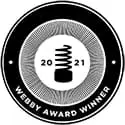Disability Is an Asset, featuring Sara Minkara, Empowerment Through Integration

Transcript
[Sara Minkara, a blind Muslim woman wearing a white hijab, sits for an interview in an industrial studio.]
SARA MINKARA: The stigma surrounding disability varies from culture to culture, but ultimately the assumptions come down to a point that people with disabilities are not capable, cannot be independent—there’s something that needs to be fixed. The narrative that we should have is that, actually, disability is a beautiful part of our identity, it’s a beautiful part of our society. It’s an asset. When a person’s not able to do something, it’s not because they cannot. It’s because the system is not accessible, it’s because the system is not inclusive. So by recognizing that, by fixing the system on both the technical level and adaptive level, people with disabilities can really embrace their own disability in a positive way and see it as an asset.
[on-screen graphic: Disability Is an Asset]
MINKARA: My name is Sara Minkara.
There are one billion individuals in this world with disabilities. That’s one-seventh of the world population. It’s the largest marginalized group in the world, in many different ways, from the education sector, employment, health sector. So everyone needs to be involved in changing the narrative.
The global community has been moving towards recognizing that people with disability are a part of the system, to be at the table discussing the policies, as well. And we cannot talk about alleviation of poverty without talking about people with disability. We cannot be talking about educating everyone without talking about people with disabilities.
Disability rights is the next movement, in the sense that it’s part of all other existent movements. In every single sector, in every single space, people with disabilities are people with potential, people that can contribute, key people that bring value. And when we don’t integrate people with disabilities into society, we are losing out. Everyone is losing out.
It’s not a charity-based perspective. It’s not just human rights. It’s a value-based perspective. The inclusion of all is a value for all.
[on-screen graphic: There Is No Justice without Disability]
Accessibility Statement
- All videos produced by the Ford Foundation since 2020 include captions and downloadable transcripts. For videos where visuals require additional understanding, we offer audio-described versions.
- We are continuing to make videos produced prior to 2020 accessible.
- Videos from third-party sources (those not produced by the Ford Foundation) may not have captions, accessible transcripts, or audio descriptions.
- To improve accessibility beyond our site, we’ve created a free video accessibility WordPress plug-in.
Sara Minkara is the founder of Empowerment Through Integration (ETI), a global nonprofit committed to building a more inclusive society. People with disabilities are the largest marginalized group in the world, and Sara believes, together, we can change that.
“Disability rights is the next movement, in the sense that it’s part of all other existent movements.”
People with disabilities make up 15 percent of the world’s population, but too often they are seen as unequal and not a valuable asset to society.
Rather than seeing people with disabilities as a burden, basically the charity perspective, Sara believes we can change the narrative and unlock the potential of people with disabilities to benefit everyone.
Resources
Interested in learning more about how to center people with disabilities in your work? Check out these helpful resources from our grantees.
- Explore this resource page from the International Disability Alliance with handbooks and technical papers on international laws
- Learn about Best Practices for Employment from the National Organization on Disability.
- Listen to Disability Rights are Civil Rights, a podcast from Leadership Conference on Civil and Human Rights.
- Hire Sara Minkara for a speaking engagement or for an inclusion training. Email: [email protected].
This piece is part of Disability Demands Justice, a dynamic, ever-evolving hub to deepen our understanding of how disability intersects with social justice.
Explore the stories
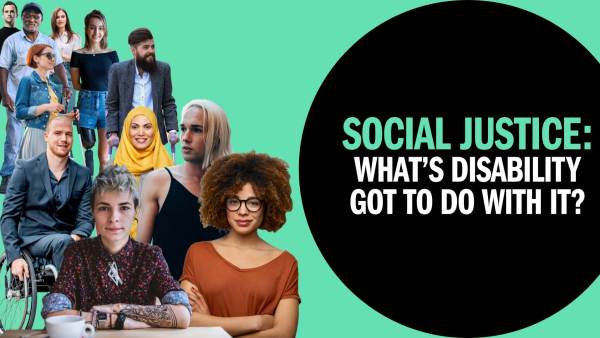
Social Justice: What’s disability got to do with it?
A society cannot be truly just without including people with disabilities and taking an intersectional approach towards tackling discrimination. This starts with inclusive leadership, where people with disabilities are invited into discussions and lead the way in advocating for inclusive, equitable spaces.
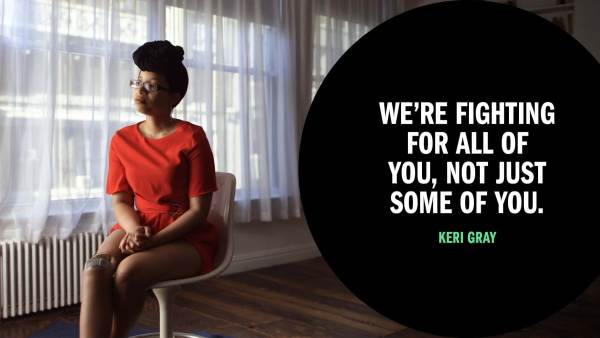
Intersectionality & Disability, featuring Keri Gray, the Keri Gray Group
Around the globe, people living with disabilities experience inequality in all its forms. Understanding intersectionality is essential to true inclusion. By centering those most marginalized and taking an intersectional approach in designing solutions, we can advance justice for all.
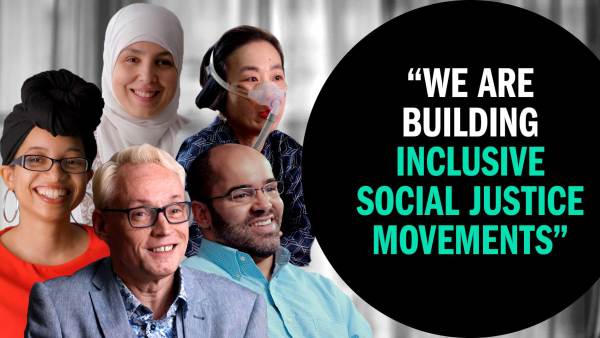
There is no justice without disability
Over one billion people in the world are living with a disability. We need to expand our definition of justice. To create a truly inclusive world, we need to recognize how disability intersects with issues of social justice. Racial justice, economic justice, and gender justice cannot exist without disability justice.
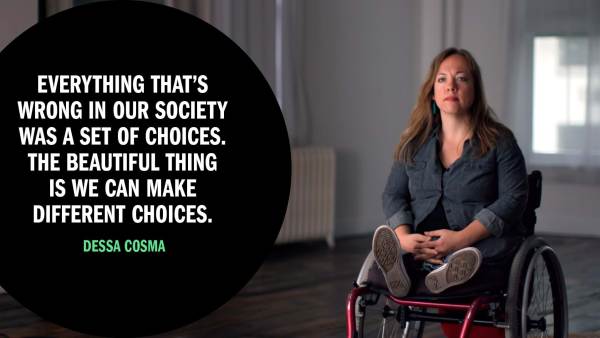
Economic Justice & Disability, featuring Dessa Cosma, Detroit Disability Power
Disability inclusion needs to be included in the fight for economic justice. Barriers to education and employment keep people with disabilities living in poverty. Ending poverty means addressing the drivers of economic inequality and reimagining the future of work.
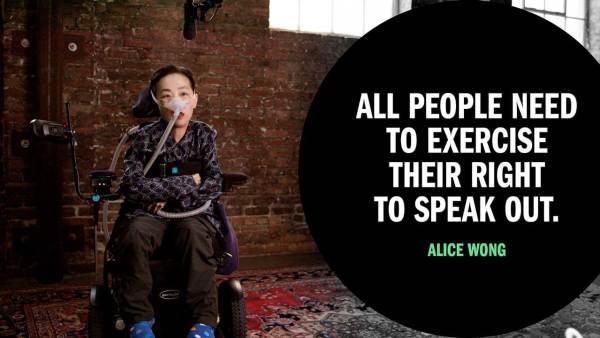
Political Participation & Disability, featuring Alice Wong
The right to vote is a fundamental part of building a thriving democracy in which all citizens can become active, engaged participants. People with disabilities face obstacles to political participation that need to be addressed in the journey to inclusion.
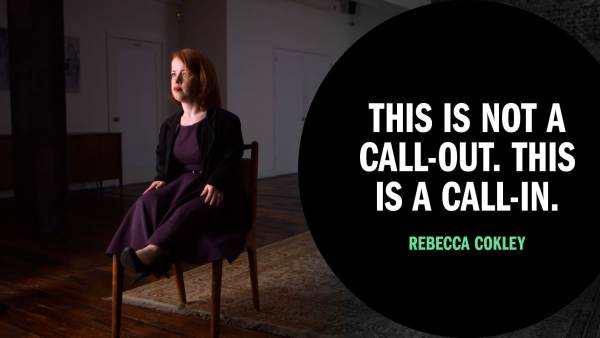
Your Values & Disability, featuring Rebecca Cokley, Center for American Progress
Disability needs to be included in the work of social justice. Through a commitment to diversity, equity and inclusion, and establishing organizational policies and practices, we can address challenges to accessibility and create an inclusive future.
